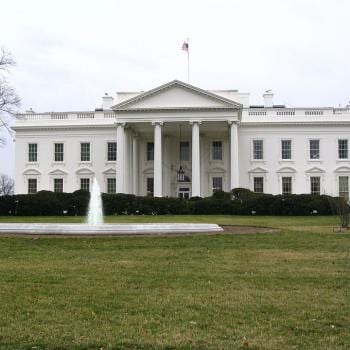Professor Bill Stuntz has a characteristically thoughtful essay, “The Inconvenient Truths of 2008,” over at The Weekly Standard. Professor Stuntz writes — and I agree — that conservatives need to understand the “inconvenient truth” that “[m]ost of today’s illegal immigrant population is here to stay (along with their descendants) and will pay no significant price for getting here outside the legal channels.” (I would note that not all conservatives share the talk-radio obsession with “the illegals”, and also that — although the press, conveniently, does not remark on the fact much — there is plenty of anti-immigrant sentiment among the Democrats’ “base”, too.) And, he seems right-on-target in reminding Democrats that for “the foreseeable future, domestic policymaking will have more to do with arranging incentives than with dispensing largesse[.]”
He also contends, though — echoing the argument he has made in other contexts — “that the political phase of the culture war is over”, that “the crusade to end abortion and reform the culture by means of electoral politics was lost several election cycles ago”, and that “[i]f pro-life evangelicals–of whom I’m one–wish to persuade our fellow citizens to protect unborn life, we must persuade them, not prosecute the ones who disagree.”
For more on Prof. Stuntz’s thesis about the legalization of abortion, abortion rates, and legal moralism, go to “Mirror of Justice.” (For example, here, here, and here).
Prof. Stuntz is right to remind us that “cultures are powerful and mysterious things; the idea that laws and politicians can direct their paths is, to say the least, lacking in empirical support.” That said, a few thoughts:
First, no one has ever suggested that those who “disagree” with the pro-life position should be “prosecute[d].” It is sometimes suggested that the law should permit the prosecution of those who perform certain abortions, on the theory that abortion involves an act that, usually, we think is eminently prosecution-worthy, i.e., the direct and intentional killing of a human being. Prof. Stuntz is entirely right that those who are pro-life should not focus entirely on politics, to the neglect of witness. (And, pro-lifers should conduct themselves in politics in a way that does not undermine efforts to be effective witnesses.)
Second, although I fear Prof. Stuntz is right that it is not now the case, and perhaps never will be (again), that the public would support a full-scale criminalization of abortion. It does not follow from this, though, that the “political phase” of the pro-life movement is over. It is still the case that a great many issues (federal funding, mandates to hospitals, development-aid, regulation of abortion facilities, ultrasound machines, partial-birth abortion, etc.) that pro-lifers do (or should) care about are very much “political”, and very much “in play.” I know it is popular, in some circles, to say that President Bush’s anti-abortion views have not made a difference on the issue, but this mistaken claim (which, to be clear, is not Prof. Stuntz’s) gets no truer with repetition.
Finally, there are the judges. The “political phase” of the “culture war” — I should say that I’m not entirely comfortable with this way of thinking about the struggle to protect religious freedom and the dignity of human life — is not over, because it has not really been permitted to begin. It is a live, and entirely political, question who will be (and who will pick) our federal judges, and it is a live question whether our federal judges will decide to let the political process decide whether, and to what extent, to regulate abortion. If Roe is reversed, would abortion disappear? Of course not. But, pro-lifers do and should care that they be permitted to take a shot at the “political phase” of the pro-life struggle. This is why judges matter, and this is why politics (still) matters. For some, it might be an “inconvenient truth”, but it is a truth nontheless — it matters, for the pro-life cause, what happens in politics (as well as in conversation).











